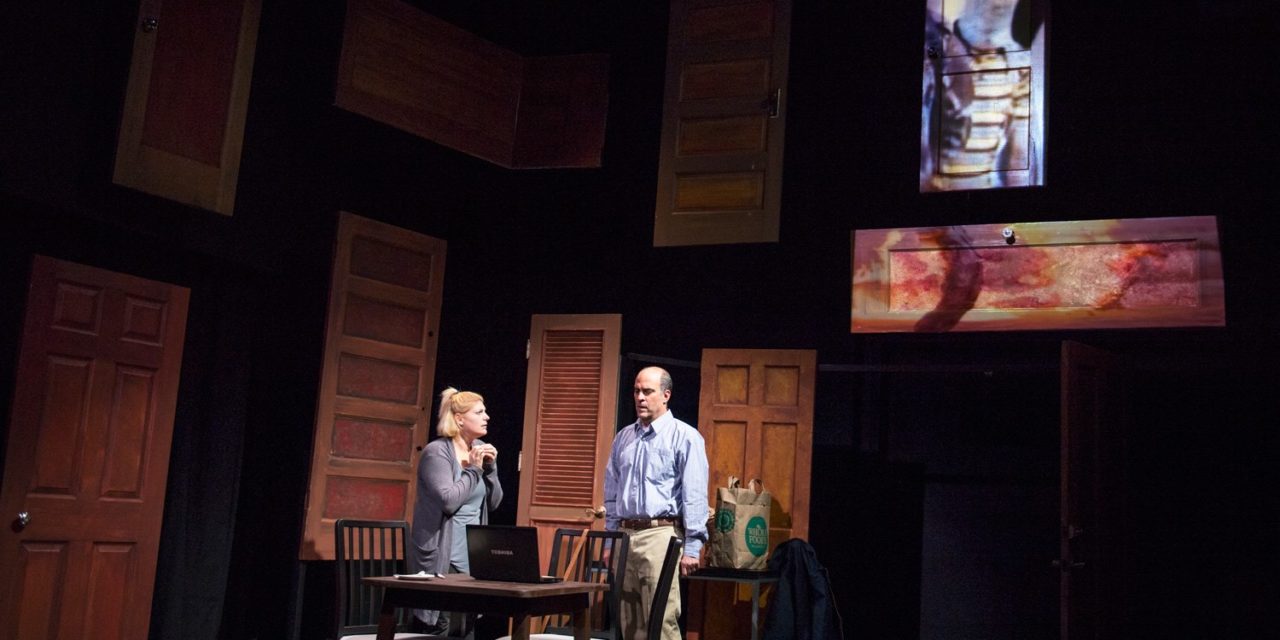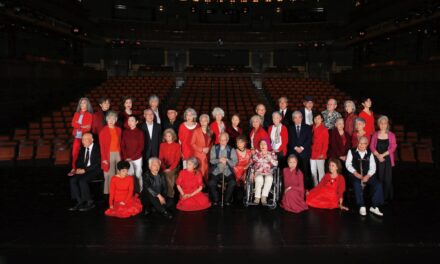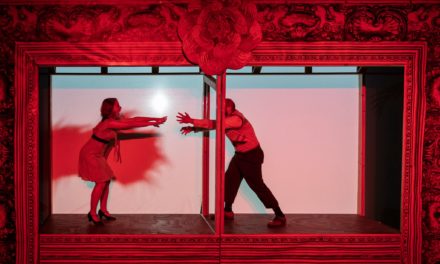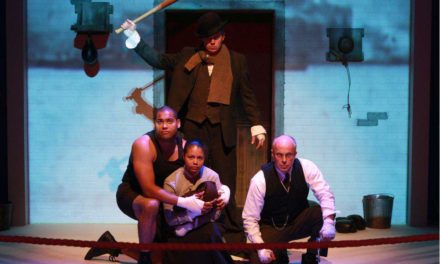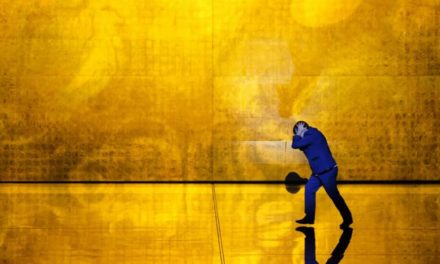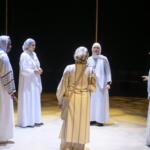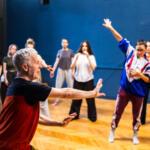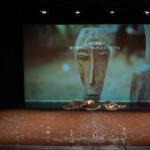As a team member of the first-time partnership between Golden Thread Productions and Literary Managers and Dramaturgs of the Americas, Publications Dramaturg Vidhu Singh takes you behind-the-scenes of ReOrient 2017 Festival of Short Plays and highlights the importance of Golden Thread in the American theatre.
ABOUT VIDHU SINGH
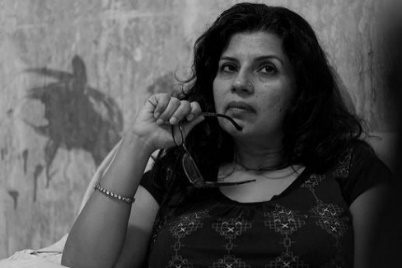
Vidhu Singh
BRAVA Artist-in-Residence Vidhu Singh is a theatre director, scholar, and dramaturg who is a key player in the South Asian Theater Arts Movement in the U.S. Founder of RasaNova Theater in 2004, she is also a founding member of World Wide Lab, an international theatre directors’ collective, and a core member of Theatre Without Borders.
Golden Thread Productions has engaged more than 50,000 audience members in the Bay Area over the course of two decades, providing a rare platform where Middle Eastern and non-Middle Eastern artists and audiences can interact and reflect on charged topical issues. Managing Director Michelle Mulholland remarks, “I’ve always appreciated Golden Thread’s ability to bring people together. Whether you are Middle Eastern or not, the work is accessible and there is a place for you in the conversation.”
Middle Eastern American theatre in the United States
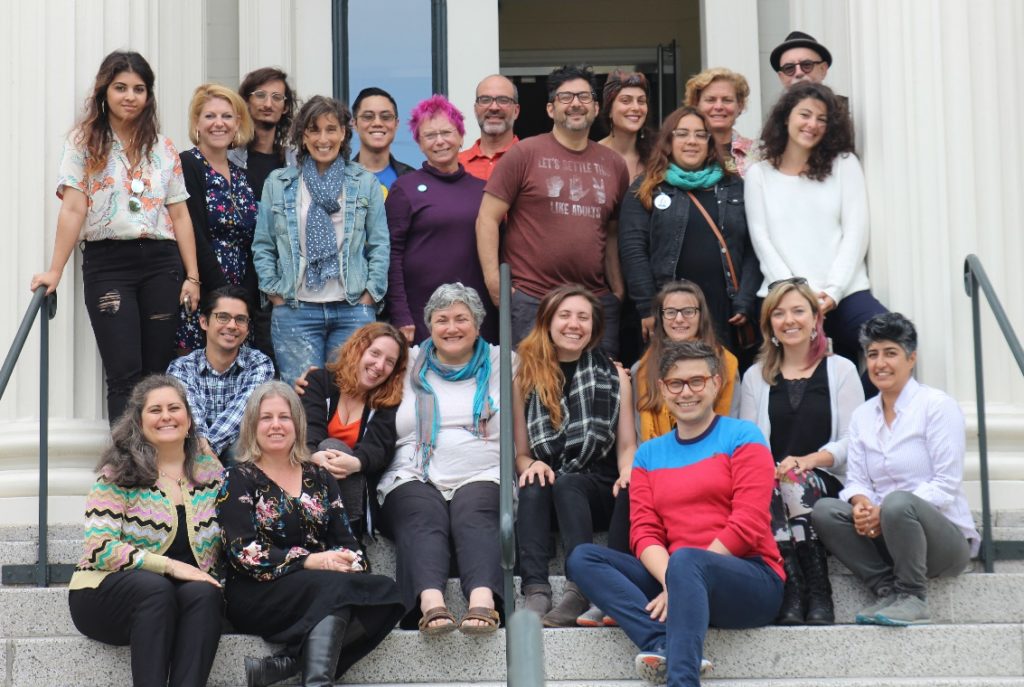
Artists at ReOrient 2017 Camp, the workshop weekend held at USF in July. Photo by Haleh Hatami.
Founded in San Francisco in 1996, Golden Thread is the first American theatre company focused on the Middle East. The pioneering efforts of Golden Thread, along with Silk Road Rising in Chicago and New York-based Noor Theatre and Nibras Arab-American Theater Collective, have contributed to the current visibility and prominence of Middle Eastern American theatre in the United States. Under Founding Artistic Director Torange Yeghiazarian’s stewardship, it has become a growing force among the new voices of the American theatre–one that the mainstream can no longer ignore.
As a South Asian artist with a passion for aesthetic border-crossings, my opportunity to collaborate as a dramaturg on ReOrient Festival is invaluable. South Asian American and Middle Eastern American artists and communities share many similar stories, cultures, and histories as immigrants. The current climate of xenophobia makes the need to forge artistic bridges even more compelling.
Golden Thread began its ReOrient Festival of Short Plays and Forum shortly after its founding “to present alternative perspectives of the Middle East and to showcase the multiplicity of stories, voices, and styles from the region.” It has since evolved into Golden Thread’s signature program, attracting artists from across the world. In the charged political context of this past year, ReOrient 2017 Festival promises to be more engaging and relevant than ever before.
ReOrient 2017: A Sneak Peek
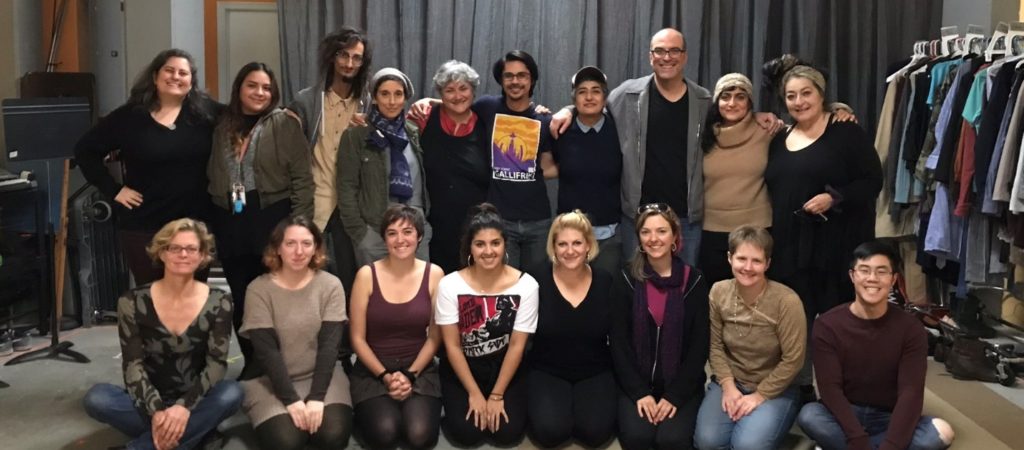
ReOrient 2017 artists at a November rehearsal. Photo by Evren Odcikin.
As one of three Publications Dramaturgs for ReOrient, I attended the first company read-through on October 24th of the seven plays in ReOrient 2017. The buzz is palpable as introductions are made among a large company of 38 artists consisting of producers, actors, directors, designers, playwrights, stage managers, and a dramaturgy team. It takes a village to put on a festival as ambitious as ReOrient!
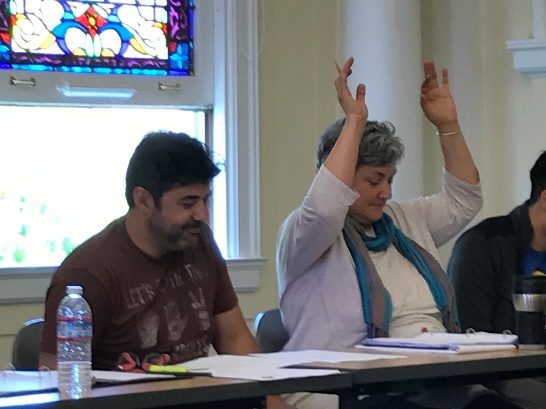
Mohamed Chakmakchi and Torange Yeghiazarian read War On Terror. Photo by Nakissa Etemad.
In the first rehearsal, a vital context is declared by the festival’s producers to fuel the intense creative process of the coming weeks.
Torange Yeghiazarian relayed the genesis of the festival: “Why do we ReOrient? As a small theatre company that produces only one or two mainstage productions a year, there was no way for us to really reflect the diversity of the Middle East…cultural, religious, linguistic, but also artistic, aesthetic diversity. That’s always been an important part of ReOrient….We started the festival [in 1999] so that we could do one program to showcase that diversity.” She invites spirited intellectual engagement from the artists present. “The art of conversation and meaningful exchange [for common understanding] has been lost,” she added. “I look to you to provide it, and to challenge each other to learn more and question your own assumptions.” She urged them to dig deep into the plays and investigate ideas with a spirit of curiosity. With these words, she handed over the conversation to Evren Odcikin, who is producing this year’s festival.
Evren suggested artists bring their whole selves and their complicated relationships to the Middle East to the table. “Nothing is off limits. Don’t assume things about people. Go at it for 3 weeks. Tell us if something is missing in the room. Be nice to other company members.” He explained that Golden Thread’s motto is “Art. Activism. Family.” and in that order.
The family of artists were energized by this rehearsal, inspired to launch into the upcoming work.
The Players
Board President Farah Jahan Siddiqui Bullara explained, “In a slight departure from ReOrient 2015, the style and tone of the plays [this year] is much more diverse. ReOrient 2017 will offer a mezze for all tastes: comedy, tragedy, contemporary, traditional [theatre] and even sound installation.”
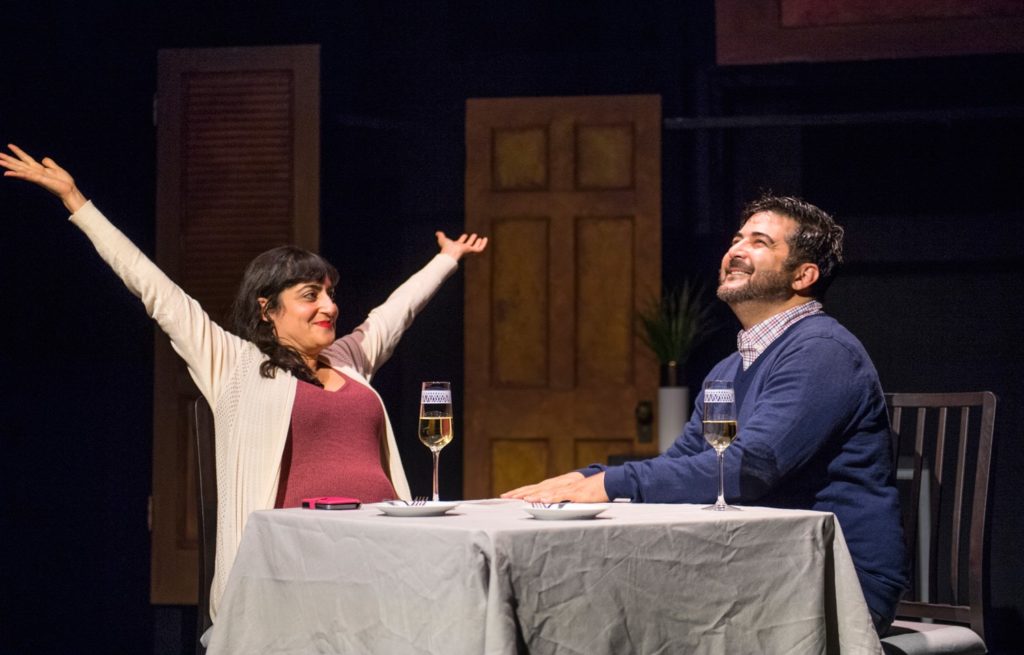
Atosa Babaoff and Mohammad Chamakchi in the play A Is For Ali by Sevan K Green
ReOrient 2017 showcased 7 playwrights selected by an eminent theatre panel from 79 submissions and 14 countries, that included three local women playwrights, Betty Shamieh, E.H. Benedict, and Torange Yeghiazarian, two U.K. playwrights, Hannah Khalil and Sevan K. Greene, and New York-based Melis Aker.
The festival puts on one stage stories and playwrights from Armenia, Iraq, Iran, Japan, Lebanon, Palestine, Syria, Tunisia, Turkey, United Kingdom and the U.S.–a singular theatre-going experience for Bay Area audiences.

ReOrient 2017 set model by Kate Boyd. Costume sketch for War On Terror by Brooke Jennings.
Photos by Michelle Mulholland.
Kate Boyd’s set design consisted of “a floating wall of doors” to reflect themes of crossing borders and to serve as a metaphor for the welcoming and the shutting out of other cultures. Doors transformed into airport scanners, beds, closets, entrances, and exits. Costume Designer Brooke Jennings showcased individual characters while highlighting the overall festival aesthetic. Lighting Designer Cassie Barnes brought her painterly and artistic approach, and James Ard connected six plays with his evocative sound design. For the seventh, James and Torange co-adapted Shelter, poetry by Junichi P. Semitsu, into a soundscape for the stage.
The exceptional seven-person ensemble, who methodically inhabited 20 roles, included Atosa Babaoff, Mohamed Chakmakchi, Naseem Etemad, Stephen Kanaski, Lawrence Radecker, Jessica Lea Risco, and Bella Warda. They were expertly directed by Erin Gilley, Susannah Martin, Evren Odcikin, and Sara Razavi.
Managing Director Michelle Mulholland pointed out, “The ReOrient process is ongoing in the 2-year cycle. We are always taking submissions, reading plays, casting, conducting development camps, rehearsing or producing at any given time. Once the team is assembled, and it takes a big team, the ReOrient process is the same as a general production, except the process of creation requires much more cooperation. We all have to collaborate to create a cohesive experience.”
Partnership with LMDA
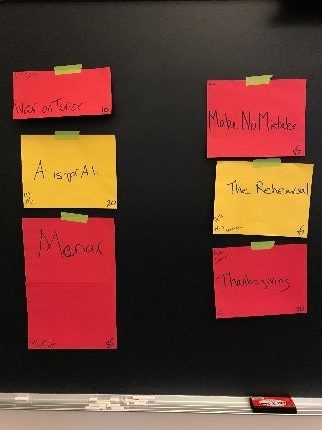
2017 order of plays created at
the ReOrient Camp. Photo by Nakissa Etemad.
This year’s ReOrient Festival marks a unique collaboration between Golden Thread and the Literary Managers and Dramaturgs of the Americas (LMDA). This partnership connects for the first time two organizations who value cultural exchange, provocative programming and dialogue, a multiplicity of perspectives, and in-depth artistic development and research. LMDA’s website states: “LMDA holds the belief that theater is a vital art form that has the power to nourish, educate, and transform individuals and their communities and that dramaturgy is central to the process of theater-making.”
LMDA’s Regional Vice President of Metro Bay Area Nakissa Etemad is the curator for the partnership and serves as lead dramaturg for the festival with a team of Production Dramaturgs and Publications Dramaturgs that also include Emily DeDakis, Maddie Gaw, and Anna Woodruff.
It is a welcome challenge for dramaturgs to excavate substantial cultural context and to provide dramaturgy for Middle Eastern American plays and their audiences. The match between dramaturgs and Middle Eastern theatre writers is apt and palpable, as both fields are a relatively recent phenomenon in this country and can greatly benefit from artistic collaboration. ReOrient is fortunate to have seasoned Iranian American dramaturg Nakissa Etemad to lead a team of dramaturgs from a variety of backgrounds to fill the gaps in cultural knowledge and provide essential creative support in play development through dramaturgy.
In addition, the ReOrient dramaturgs gathered vital research and created fact sheets about the plays called Notes & Context, which included enriching background information, such as geographical maps for the setting of plays, the play’s origins, characters and style, reference articles and statistics. Nakissa’s dramaturgical notes and article packets on Betty Shamieh’s Make No Mistake contained an insider’s look into the playwright’s inspirations and a wealth of knowledge about Amal-Al-Sadah, the youngest wife of Osama bin Laden who is the inspiration for the character of Amal. Emily DeDakis’ dramaturgical notes on Hannah Khalil’s The Rehearsal revealed the play was inspired by post-Revolution censorship of theatre in Egypt and the story of the remarkable couple who co-founded Belarus Free Theatre in opposition to a regime that raids performances and imprisons artists.
The partnership provided three Publications Dramaturgs for ReOrient who each composed a feature article (the first of which you are reading now) on a ReOrient topic for audiences and members of both organizations to cross-promote, advocate, educate, and inspire audiences and members about this special festival and company, and the field of dramaturgy. Dramaturgs provided the resources to contextualize and deepen the understanding of ReOrient’s plays for artists and audiences. (You can find other articles here.)
The Work Continues
Golden Thread Productions has succeeded in making Middle Eastern theatre integral to the American stage and is a vital component in the Bay Area theatre tapestry. There appears to be a noticeable divide between mainstream theatre companies and smaller culturally-specific theatres in the Bay Area. However, Golden Thread bridges the gap and continues to thrive because of its passionate leadership, artistry, and fierce advocacy for Middle Eastern theatre artists. It is a small company with a big vision that is changing the national dialogue around cultural inclusion in the performing arts. Torange Yeghiazarian and Founding Artistic Director Jamil Khoury of Silk Road Rising, a theatre company which focuses on Asian/Middle Eastern American stories, co-wrote Middle Eastern Artists Bill Of Rights and Dear Producers, An Open Letter which was recently published in American Theatre magazine with the goal of elevating the conversation around the inclusion of Middle Eastern voices on the American stage.
President Farah Bullara proclaimed: “Golden Thread’s work is important to me personally because I feel called to defend these artists and their work in an America that has become less tolerant of diversity and plurality. […] I feel as if Golden Thread’s very survival is an act of resistance. Because we live in an increasingly divided America, there is a fierce urgency to the work that we do.”
Get ready to ReOrient.
This article originally appeared on Golden Thread Productions and Literary Managers and Dramaturgs of the Americas (LMDA) in November 2017 and is republished here with permission.
This post was written by the author in their personal capacity.The opinions expressed in this article are the author’s own and do not reflect the view of The Theatre Times, their staff or collaborators.
This post was written by Vidhu Singh.
The views expressed here belong to the author and do not necessarily reflect our views and opinions.

